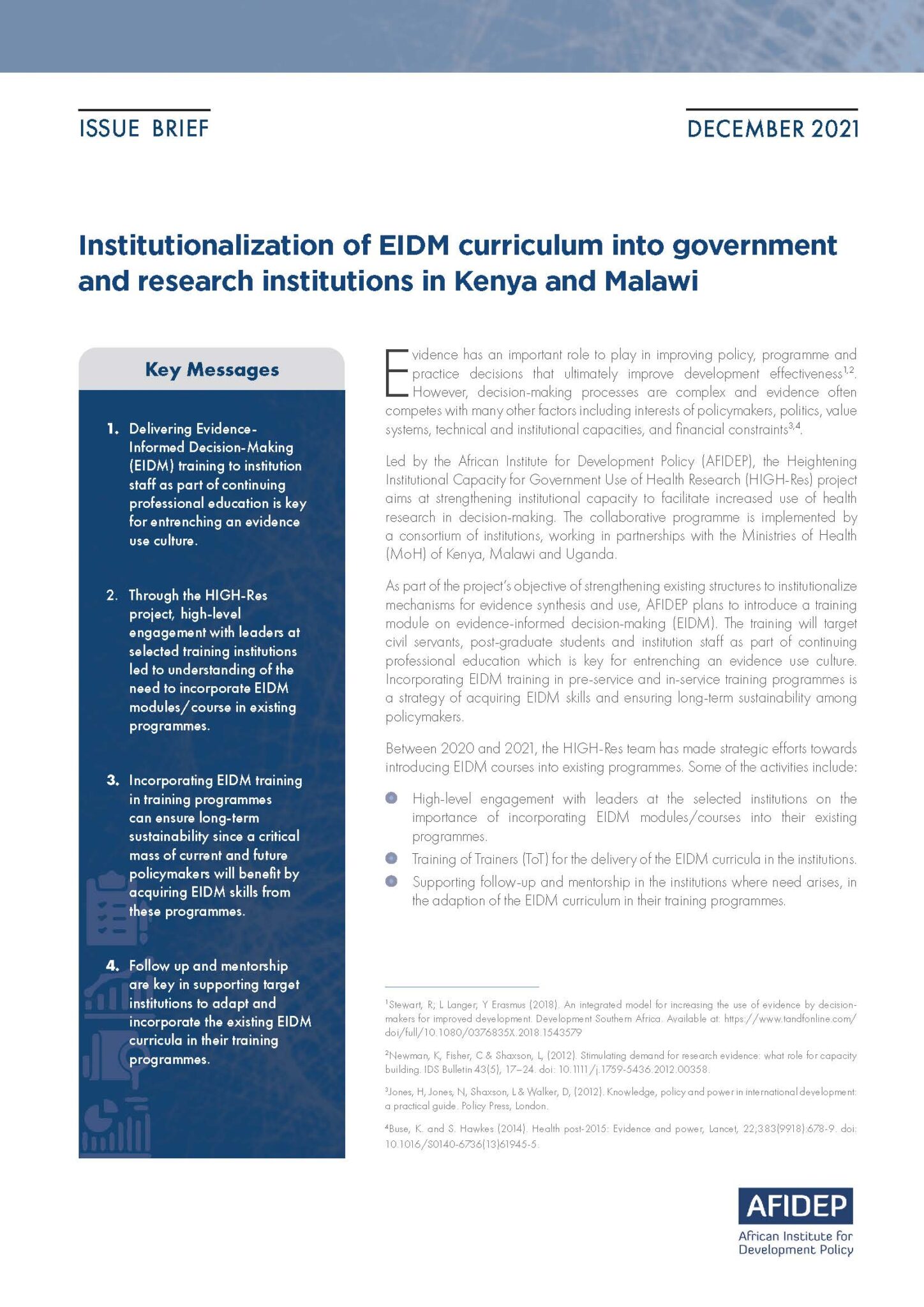Evidence has an important role to play in improving policy, programme and practice decisions that ultimately improve development effectiveness. However, decision-making processes are complex and evidence often competes with many other factors including interests of policymakers, politics, value systems, technical and institutional capacities, and financial constraints.
This issue brief presents efforts by the Heightening institutional capacity for government use of health research (HIGH-Res) project (led by AFIDEP) to introduce a training module on evidence-informed decision-making (EIDM) in select institutions in Kenya and Malawi targeting technical-level staff. As part of continuing professional education, the EIDM training will serve to entrench an evidence use culture.

